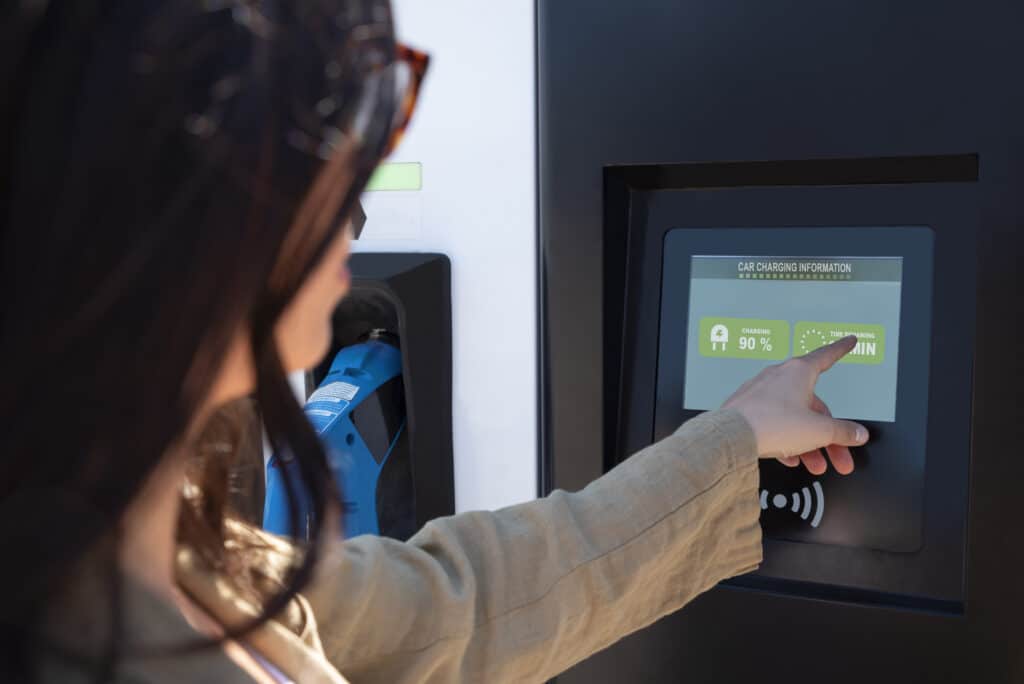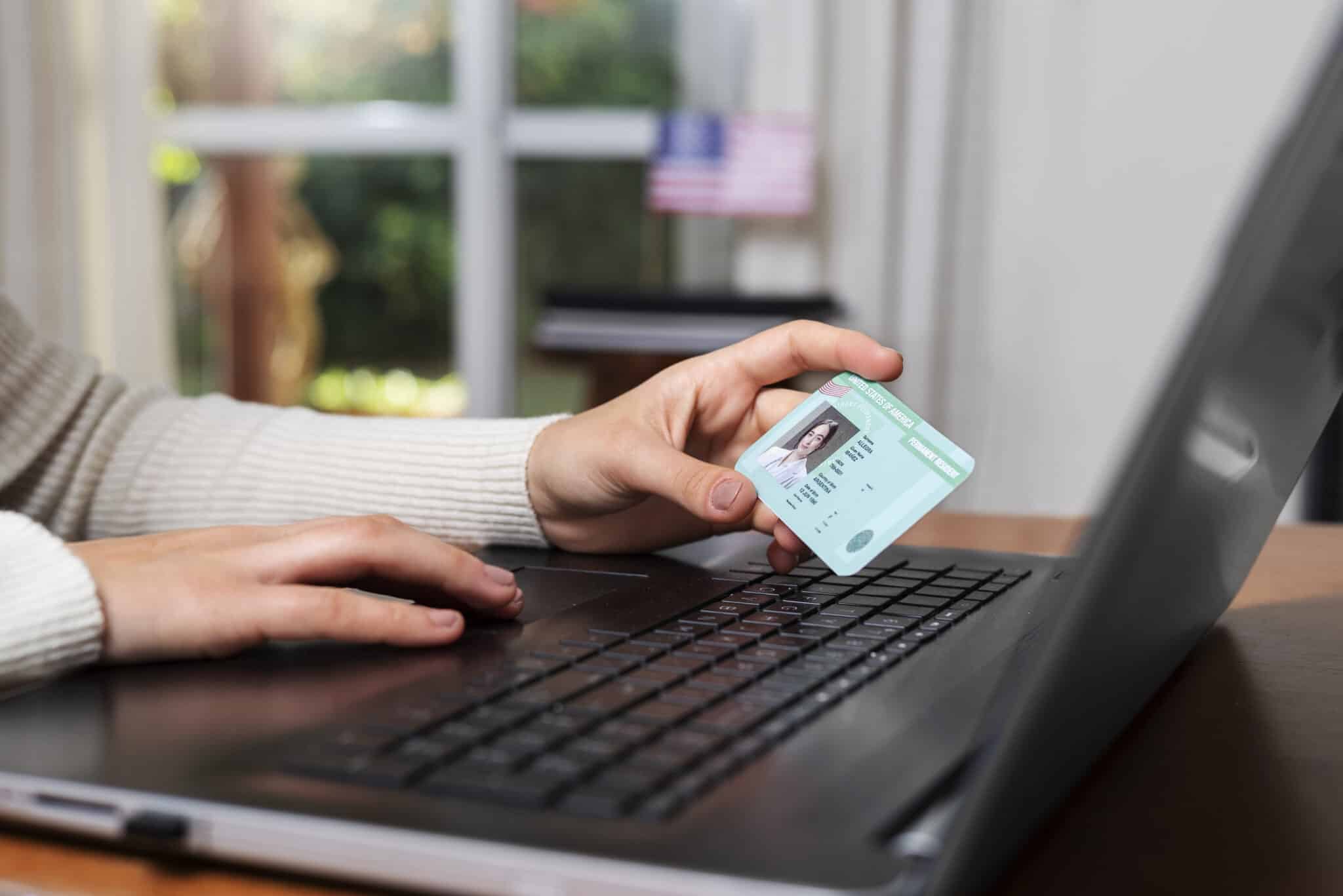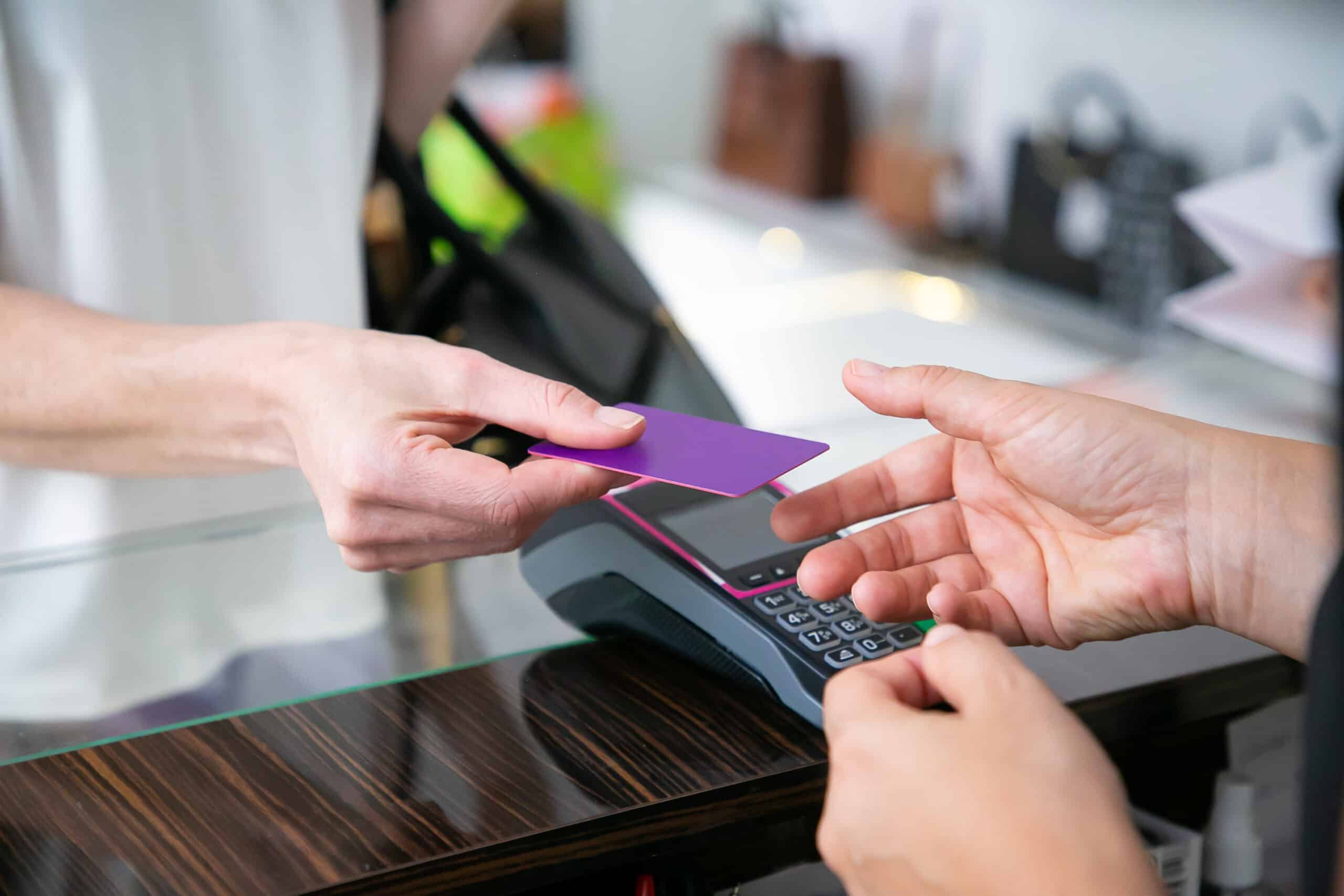Understanding The Role Of Bank Identification Number Checker In Fraud Prevention

In today’s digital age, online transactions have become a common practice for businesses and consumers alike. With this increased reliance on electronic payments, the risk of fraud has also grown. This is where Bank Identification Number (BIN) checkers play a crucial role in preventing fraudulent activities. From identifying suspicious transactions to verifying card authenticity, BIN checkers provide businesses with the necessary tools to safeguard against potential threats. This article will explore the role of BIN checkers, how they work, their limitations, and best practices for implementation.
You can delve into the world of BIN checkers and learn how they can help protect your business from fraud.
What is a Bank Identification Number (BIN)?
A Bank Identification Number (BIN) is a unique set of numbers assigned to a bank or financial institution to identify transactions involving credit or debit cards. It plays a critical role in payment processing systems and is essential for verifying the authenticity of card transactions.
This verification process is carried out using a BIN checker, which compares the BIN against a database to confirm the legitimacy of the card and its association with the issuing bank. Recognizing the importance of BINs is crucial for securing online transactions against fraudulent activities.
By cross-referencing BIN information with transaction specifics, merchants and financial institutions can identify and prevent potential fraud occurrences, thereby bolstering financial security in the digital payment landscape. BINs serve as a primary line of defense in thwarting unauthorized transactions, safeguarding both consumers and businesses from financial risks and obligations.
How is a BIN Different from a Card Number?
A Bank Identification Number (BIN) differs from your card number as it specifically identifies the issuing bank and plays a vital role in fraud prevention. Your card number, on the other hand, includes additional digits that represent your account information.
For retailers and online merchants like yourself, understanding the distinction between the BIN and card number is crucial in safeguarding transactions against fraud. BIN Checker Tools serve as an essential resource in verifying the accuracy of BIN information, ensuring that your payments are processed securely. By accurately identifying the issuing bank, BINs can help you detect potential fraudulent activities early on in the transaction process. This thorough validation process is a key component in maintaining the integrity of financial transactions in an increasingly digital landscape.
Why is a Bank Identification Number Checker Important?
Utilizing a Bank Identification Number (BIN) Checker is crucial for verifying the legitimacy of card transactions and strengthening fraud detection measures within payment systems. The tool plays a vital role in validating card details and ensuring the security of online transactions.
When financial institutions incorporate BIN Checker Tools, they can efficiently confirm the card’s origin, thus guaranteeing the authenticity of transactions and minimizing the chances of unauthorized purchases. Integration of Fraud Detection mechanisms with BIN Checkers helps in identifying suspicious activities, such as irregular spending patterns or unauthorized access attempts, allowing for prompt action to prevent potential fraud. The seamless inclusion of BIN Checker tools in payment processing systems provides an additional layer of security, enhancing consumer confidence and protecting sensitive financial data.
How Does a BIN Checker Work?
A BIN Checker functions by examining the Bank Identification Number provided in a transaction and comparing it against a database that contains details about card issuers and financial institutions. This procedure is essential for effective risk management and bolstering fraud detection capabilities.
Utilizing advanced data analysis techniques, the BIN Checker validates transactions by verifying the credibility and legitimacy of the card issuer. By analyzing BIN data, it assists in detecting potentially fraudulent activities and stopping unauthorized transactions. Data analysis plays a pivotal role in upholding financial security by flagging suspicious transactions and mitigating the risks associated with online payments. This thorough verification process not only safeguards the interests of businesses but also fosters customer trust and confidence in online transactions.
What Information Can Be Obtained from a BIN Checker?
Utilizing a BIN Checker provides you with valuable information, including details about the card issuer, country of origin, card type, and security features associated with the Bank Identification Number. These insights help in identifying potential fraudulent activity and allow you to implement necessary security protocols to protect your business.
By employing a BIN Checker, businesses and financial institutions can access specific information about the bank or financial institution that issued a particular credit or debit card. This ensures that transactions are secure and reliable, as the BIN also discloses the card’s country of origin, aiding in the verification of transaction legitimacy.
Understanding the security features linked to a BIN give the power tos organizations to enhance their fraud detection capabilities and establish rigorous security measures to safeguard sensitive financial data. This comprehensive validation process plays a critical role in mitigating the risks associated with fraudulent activities and upholding the overall security of financial transactions.
What Are the Benefits of Using a BIN Checker?
By utilizing a BIN Checker, you can benefit from several advantages, such as a streamlined verification process for transactions, enhanced anti-fraud measures, and improved financial security. The BIN Checker plays a crucial role in ensuring the protection of payment processing systems.
Efficiently verifying Bank Identification Numbers (BINs) through the BIN Checker guarantees smooth and secure transaction processes. By implementing advanced anti-fraud measures, potential fraudulent activities can be quickly identified and prevented, reducing risks for both businesses and consumers. This tool also enhances financial security by validating cardholder information, thereby increasing the reliability of online transactions.
Integrating a BIN Checker into payment systems not only boosts efficiency but also builds trust among users, contributing to a safer and more secure digital payment environment.
How Can a BIN Checker Help Prevent Fraud?
Utilize a BIN Checker to enhance fraud prevention by streamlining the verification process, detecting fraudulent transactions through risk analysis, and implementing proactive measures to strengthen financial security. This tool is essential for minimizing risks linked to online transactions.
When you authenticate a transaction by verifying the Bank Identification Number (BIN) against an extensive database, the BIN Checker effectively scans for irregularities and warning signs that may indicate potential fraudulent behavior. This detailed examination give the power tos businesses to evaluate the risk level associated with each transaction, allowing them to promptly block any suspicious activities.
The real-time monitoring functions of a BIN Checker are instrumental in identifying and thwarting fraudulent transactions before they inflict significant financial harm. These advanced tools have transformed the landscape of fraud detection and prevention in the digital sphere, boosting confidence in secure online transactions for both businesses and consumers.
Identifying Suspicious Transactions
Utilize a BIN Checker to identify suspicious transactions by monitoring payment activities, safeguarding account information, and preventing potential instances of identity theft. This tool serves as a proactive measure to enhance security and protect cardholder information.
Through continuous Transaction Monitoring, a BIN Checker acts as a vigilant guardian of financial data, swiftly flagging any irregularities or potentially fraudulent activities. By implementing robust security protocols and Account Protection measures, businesses can significantly reduce the risks associated with cyber threats. This proactive stance not only safeguards sensitive information but also enhances customer trust and loyalty by ensuring secure payments.
Verifying Card Authenticity
Verifying card authenticity through a BIN Checker is essential for ensuring secure payments and leveraging sophisticated algorithms to detect and prevent fraudulent schemes. This validation process enhances transaction security and safeguards against unauthorized card usage.
By utilizing an advanced algorithm, the BIN Checker meticulously analyzes the Bank Identification Number (BIN) to identify the issuing bank and other crucial details. This thorough verification process helps in identifying potential fraud schemes, such as identity theft or unauthorized transactions, before any payment is processed. The instant validation offered by the BIN Checker adds an additional layer of protection to online transactions, ensuring that customers can securely proceed with their purchases without the risk of falling victim to fraudulent activities.
Preventing Chargebacks
Utilize a BIN Checker to prevent chargebacks by validating transactions in e-commerce scenarios, securing payment gateways, and safeguarding sensitive cardholder information. The BIN Checker acts as a protective measure against fraudulent chargeback attempts, contributing to the smooth processing of financial transactions.
When you employ a BIN Checker, you are effectively cross-referencing the Bank Identification Number (BIN) provided in a transaction with the issuing bank’s database to authenticate the transaction’s legitimacy. This verification process plays a crucial role in lowering the likelihood of unauthorized transactions, subsequently enhancing the overall security of e-commerce platforms.
By identifying suspicious activities and potential risks, the BIN Checker helps uphold the integrity of payment gateways and reduces the occurrence of chargebacks stemming from fraudulent transactions.
How Can a BIN Checker Help Prevent Fraud?
Utilizing a Bank Identification Number (BIN) Checker is crucial for businesses seeking to prevent fraudulent activities and ensure the security of online transactions. With its advanced algorithms and secure protocols, a BIN Checker aids in verifying transactions, authorizing payments, and mitigating risks associated with fraudulent behavior.
The BIN Checker plays a significant role in safeguarding financial transactions by validating credit card authenticity and allowing only authorized transactions to proceed. By identifying high-risk transactions, flagging suspicious activities, and enhancing overall security measures in payment processing systems, the BIN Checker assists in maintaining a secure environment.
This tool enables businesses to establish a robust authentication framework, ensuring that only legitimate transactions are processed and reducing vulnerability to fraudulent schemes. Given the evolving landscape of cyber threats, the integration of a BIN Checker into the payment verification process is becoming increasingly essential for businesses across various industries.
Identifying Suspicious Activity
Businesses can leverage a BIN Checker to identify suspicious activity in real-time, enhancing account verification procedures, strengthening transaction security, and fostering trust with financial institutions. This proactive approach aids in detecting and preventing fraudulent behavior within payment systems.
By swiftly detecting discrepancies in card information and cross-referencing it with a vast database of issuer identification numbers, you can ensure that transactions are secure and legitimate. Implementing a reliable BIN Checker allows businesses to verify the authenticity of cardholders and safeguard against potential risks associated with unauthorized transactions. This not only protects the company’s financial assets but also upholds their reputation within the industry, establishing a strong foundation of trust with financial institutions for long-term success.
Verifying Card Authenticity
By conducting thorough data analysis, a BIN Checker can verify card authenticity, detect fraudulent charges, and streamline the verification process for your business. This ensures that transactions are secure, authorized, and free from fraudulent attempts, enhancing overall financial security.
The streamlined verification process provided by the BIN Checker not only saves your business valuable time but also minimizes the risk of unauthorized transactions. Through real-time analysis and cross-referencing of transaction data with the BIN database, potential fraudulent charges can be identified promptly, allowing your business to take necessary preventive actions. This proactive approach significantly reduces the financial losses that may result from fraudulent activities, ultimately safeguarding the financial well-being of both your business and its customers.
Preventing Fraudulent Use
Implementing robust security protocols and anti-fraud measures with a BIN Checker is crucial for preventing fraudulent use of payment systems and combating financial crime. By adhering to industry security standards and leveraging advanced fraud detection techniques, you can safeguard against fraudulent practices and protect your financial assets.
These measures not only protect your business itself but also help in maintaining consumer trust and loyalty. Financial crime can have far-reaching consequences, impacting not only your company’s bottom line but also tarnishing its reputation. This is why you need to stay vigilant and proactive when it comes to implementing security measures.
By utilizing a BIN Checker and regularly updating your security protocols, your organization can stay one step ahead of fraudsters and ensure the integrity of your payment systems.
What Are the Limitations of a BIN Checker?
While using a BIN Checker can be a helpful tool for preventing fraud, businesses may encounter limitations in detecting intricate fraudulent patterns. It is essential for you to recognize these limitations to uphold the integrity of financial transactions and bolster overall security measures.
The constraints arise from BIN Checkers relying solely on the Bank Identification Number (BIN) of a card, which may not always encompass the entirety of sophisticated fraud schemes. Fraudsters have the ability to manipulate various transaction elements, such as geolocation, device fingerprinting, and behavioral patterns, in order to elude detection.
Therefore, it is imperative that you complement BIN Checker tools with advanced detection techniques like machine learning algorithms, anomaly detection, and real-time monitoring to strengthen your fraud prevention strategies and protect financial transactions from evolving fraudulent threats.
Outdated or Inaccurate BIN Information
One of the limitations of a BIN Checker is the potential presence of outdated or inaccurate information within BIN databases, which can impede effective identity verification processes and compromise the accuracy of card verification values. To address this issue, businesses like yours must engage in regular updates of their BIN databases to uphold the veracity of transaction information.
Outdated or incorrect BIN data can result in inconsistencies when verifying cardholder identities, posing challenges for companies seeking to uphold secure transactions. The precision of Card Verification Values (CVVs) is intricately linked to the correctness of the BIN data. To mitigate this challenge, companies should incorporate updated BIN databases into their operational systems. By leveraging precise BIN information, the identity verification process becomes more seamless and trustworthy. Maintaining current records is essential for businesses in fortifying themselves against fraudulent activities and guaranteeing smooth card verification procedures.
How Can Businesses Implement a BIN Checker?
Businesses can enhance their security measures by implementing a BIN Checker into their payment systems. This can be achieved through partnering with reputable financial services providers who specialize in combating fraudulent activities and identifying suspicious behavior. The integration of a BIN Checker not only strengthens the overall security of payment transactions but also provides businesses with valuable insights into transaction patterns and trends that may indicate potential risks.
Utilizing a BIN Checker in payment processes enables businesses to efficiently verify the legitimacy of transactions, reduce chargebacks, and maintain the trust of their customers. This proactive approach aligns with the best practices recommended by leading industry experts in financial services to mitigate the risks associated with fraudulent behavior.
Using a Third-Party BIN Checker Service
By utilizing a third-party BIN Checker service, you can enhance your ability to detect transaction fraud, prevent fraudulent charges, and establish strong fraud prevention strategies. Outsourcing BIN validation processes can help your business improve its fraud detection capabilities and reduce risks associated with financial transactions.
This approach allows you to verify card transaction authenticity accurately, promptly identify any suspicious activities, and protect your revenue streams. The use of BIN checking services can also streamline your operational efficiency by automating the verification process, minimizing manual errors, and ensuring compliance with industry standards. By taking a proactive stance against transaction fraud, you can uphold your business’s reputation, cultivate trust with customers, and ultimately bolster your financial security measures.
Developing an In-House BIN Checker System
Establishing an in-house BIN Checker system enables your business to align with Payment Card Industry (PCI) standards, stay updated on fraudulent trends, and implement tailored security measures. By developing internal capabilities for BIN validation, you can enhance your fraud detection systems and adapt to evolving security challenges.
This level of control over payment card data processing allows your company to have greater visibility and accountability in safeguarding sensitive information. An in-house system offers the flexibility to customize security protocols according to your specific business needs and threat landscapes. With real-time BIN validation capabilities, your organization can detect and prevent fraudulent transactions swiftly, reducing potential financial losses and reputational damage.
By actively maintaining an internal BIN Checker system, your business demonstrates a commitment to data security and compliance while proactively mitigating risks associated with unauthorized activities.
What Are the Best Practices for Using a BIN Checker?
When using a BIN Checker, you should adhere to best practices by proactively identifying fraudulent attempts, implementing effective payment fraud prevention strategies, and safeguarding against card fraud. By following industry guidelines and leveraging advanced detection techniques, businesses can enhance their security protocols and mitigate risks associated with fraudulent activities.
This proactive approach not only helps in reducing financial losses but also builds trust with customers. By cross-referencing the Bank Identification Number (BIN) data with transaction details, you can quickly spot any inconsistencies that may signal potential fraud. Regularly updating BIN databases and staying informed about the latest fraud trends can further fortify your company’s defense mechanisms.
In today’s digital landscape, where card fraud is becoming increasingly sophisticated, staying vigilant and proactive in utilizing BIN checking tools is crucial for maintaining a secure payment environment.
Regularly Updating BIN Databases
Ensuring the regular update of BIN databases is crucial for your business to combat fraudulent transactions, enhance credit card security, and prevent the misuse of card information. By maintaining accurate database information, you can strengthen your fraud prevention measures and protect against unauthorized transactions.
This level of security goes a long way in instilling confidence in your customers and building a strong reputation for your business. The constant updating of BIN databases allows for real-time detection of potential fraudulent activities, which is essential in today’s digital landscape. By staying ahead of the curve with updated information, you can reduce the risk of falling victim to fraudulent use of card data and safeguard sensitive customer information. In essence, the efficiency of your fraud prevention measures directly correlates to the accuracy and timeliness of BIN database updates.
Utilizing Multiple BIN Checkers
Utilizing multiple BIN Checkers allows businesses to strengthen their fraud detection capabilities, validate BIN information across various platforms, and identify potential fraudulent activities more effectively. By diversifying BIN validation sources, you can enhance your security protocols and minimize the risks associated with financial fraud.
Employing different BIN Checkers increases the accuracy and reliability of verifying financial transactions and customer information. Each BIN Checker comes with its own database and algorithm, providing a comprehensive view of transaction data and patterns. Additionally, this diverse approach facilitates cross-verifying information from Financial Institutions and identifying discrepancies that may indicate fraudulent activities.
Integrating keywords related to Financial Institutions and Fraudulent Activities into the validation process enables businesses to pinpoint potential red flags quicker and take proactive measures to prevent financial losses.
Verifying BIN Information with Issuing Banks
Verifying BIN information directly with issuing banks enhances data security, streamlines authorization processes, and ensures accurate account verification.
Taking a proactive approach to verifying BIN data plays a crucial role in safeguarding sensitive customer information and preventing fraud. By cross-referencing the BIN information against the issuing bank’s database, you can detect any discrepancies or anomalies in real-time, thus minimizing the likelihood of fraudulent activities. Additionally, collaborating with banks for BIN validation allows you to validate account details accurately, ensuring smoother transactions and reducing the chances of errors or delays. This partnership with banks for BIN validation is an essential component of maintaining robust data security and enhancing overall operational efficiency.
Frequently Asked Questions
What is a Bank Identification Number (BIN) Checker and how does it help in fraud prevention?
A Bank Identification Number (BIN) Checker is a tool used to validate the authenticity of a credit or debit card by checking the first six digits of the card number, known as the BIN. It helps in fraud prevention by verifying the card issuer and country, detecting suspicious patterns, and identifying potential fraudulent transactions.
How does a BIN Checker detect potential fraudulent transactions?
A BIN Checker compares the BIN of a credit or debit card with a database of known BINs issued by different card networks. If the BIN does not match any known BINs, it raises a red flag and alerts the merchant or bank of a potential fraudulent transaction.
What is the significance of a BIN Checker for merchants and banks?
A BIN Checker is crucial for merchants and banks in preventing fraud as it helps them verify the authenticity of a credit or debit card. It also assists in identifying and blocking potential fraudulent transactions, protecting both the merchants and customers from financial losses.
Can a BIN Checker be used for online transactions?
Yes, a BIN Checker can be used for online transactions as well. It is often integrated into payment gateways to validate the BIN of a credit or debit card during an online transaction. Additionally, this helps in reducing the risk of fraud and ensuring the security of online transactions.
Is a BIN Checker 100% accurate in detecting fraudulent transactions?
While a BIN Checker is a useful tool in fraud prevention, it is not 100% accurate. Fraudsters can use stolen or fake BINs to bypass the BIN Checker’s verification process. Additionally, it is important for merchants and banks to have other fraud prevention measures in place to ensure maximum security.
Are there any legal implications of using a BIN Checker for fraud prevention?
No, there are no legal implications of using a BIN Checker for fraud prevention. In fact, using a BIN Checker is essential for merchants and banks to protect themselves and their customers from fraudulent transactions. However, it is important to comply with data privacy laws and regulations when using a BIN Checker to avoid any legal issues.



